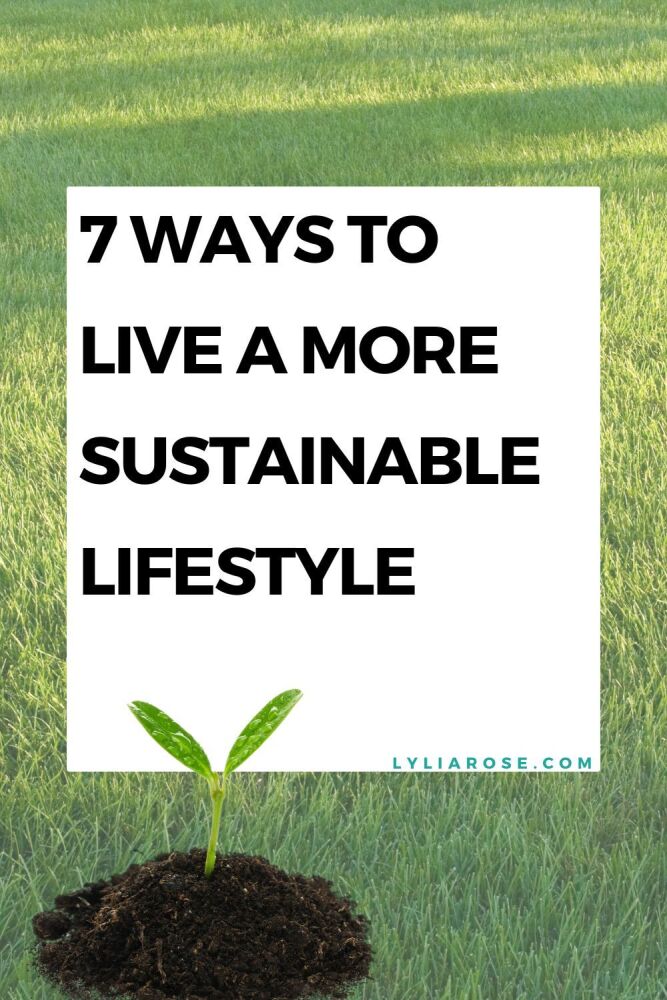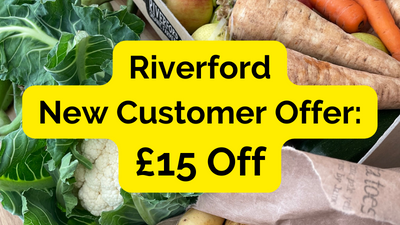7 ways to live a more sustainable lifestyle
Posted on
There’s no doubt about it, going green is the new big trend and rightly so.
Not a day goes by where I don’t see an advert or company going CO2 neutral or trying to be more sustainable.
It’s crazy how this has only just taken off and hasn’t been mainstream for years.
When I was a youngster we didn’t even have recycling bins at home. Everything went in the trash. It’s such a mad thought as I’d feel terribly guilty nowadays throwing plastic or paper into the main bin.

It's time to make a change...
Unfortunately we’ve been polluting our air, water and soils for far too long.
We’ve been using too many natural resources that can’t be replaced.
It’s time to make a change and start protecting our environment for future generations.
It will also be great for our own health too!
If you think it’s complicated to start leading a more sustainable life, too expensive or you’re worried about where to find a chargepoint if you switch to an electric car, read on.
Here are some of the ways you can begin to lead a more sustainable lifestyle:
1. Drive electric
Electric vehicles are becoming more commonplace, especially since the news the UK will ban the sale of all petrol and diesel cars in 2040. It’s only a good thing long term as car emissions contain CO2 and numerous other toxins that pollute our air and are terrible for our health. I can’t help but think of all the dangerous chemicals I must be breathing in every time I walk down a busy street.
Hopefully car prices for electric vehicles will be more affordable once there are more on the roads and sales increase. As with anything new it can be a little nerve-wracking making the switch from something you’ve always known. How do they work? How do you charge them? Where do you charge them? Thankfully the answers to all these questions can quickly be answered online with a little research, plus you can easily find a charge point in over 50,000 locations by downloading the NewMotion app.
2. Use solar power
Solar panels provide you with non-polluting green energy from the sun with the added bonus of being free. Yes, there will be an investment at first to buy the solar panels when investing in home energy systems, but this will reduce your normal electricity bills and over time you’ll make the original investment back. Any unused solar energy you generate can be sold to the electric company, meaning you’ll get regular cheques through the year.
Solar panels are a long term investment with profits expected after 10 years. There are also schemes for renting your roof to companies who will install solar panels and cash in from the extra electricity generated, giving you the benefit of using some of the electricity generated and reducing bills. These aren’t always the best option so the contract needs to be well read, but it could be good for those who can’t ever afford solar panels upfront.
We have solar panels and luckily we’re on an older tariff so receive around £900 in cheques per year, plus cheaper electric bills, so it’s definitely worth looking into.
Solar panels are a great choice if you want to live off-grid or be more self-sufficient. Opt for renewable energy sources instead of fossil fuels where possible.
3. Choose organic
Going organic isn’t just about what you put in your own body, but what you choose to put into the environment too. All those chemical fertilizers and pesticides that are sprayed onto ‘normal’ food have to go somewhere. What’s not in your food is washed off into the environment causing devastation to animals, soils and our water supply.
Unfortunately the population of bees in recent years has been in massive decline. This is mainly due to these nasty chemicals. This could have a devastating impact on our food supply if we don’t reverse this soon. Bees are responsible for pollinating much of our food supply.
See: 3 Important Reasons to Choose Organic (other than your personal health)
4. Buy second hand and donate
Sadly clothing manufacturing is a massive contributor to pollution and this has only increased with our love of fast fashion. Cheap clothes and fast changing fashion meaning we buy poor quality clothes and throw them out a few months later. Clothing production uses a lot of energy, water and chemicals, for example those used as dye for denim or to make clothes waterproof.
A simple way to reduce the impact our clothing has on the environment is to shop second hand. Use eBay or charity shops to find preloved clothes rather than shopping new. If the demand for new reduces then the factories won’t make as many new garments.
Tons of clothes are thrown into landfill every year when they don’t need to be. Instead, donate to a local charity shop. If the clothes are too worn to be sold then ask if the charity shop takes worn out clothes for rags. Many council recycling centres also have drop off points for worn out textiles that can be turned into rags.
5. Switch to LED
Eco friendly LED light bulbs use far less energy to run than traditional bulbs. They also last longer and produce more light with less heat loss. In traditional incandescent light bulbs approximately 95% of energy is wasted as heat and only 5% used as light. In LEDs it’s the opposite; 5% wasted as heat and a whopping 95% used as light.
To be really environmentally friendly use natural candles to low light your room in the evening instead of a lamp.
6. Reduce, recycle & reuse
Stop throwing out plastic, paper, glass, cardboard, tetra packs, punnets and foil. Always put them in a household recycling bin so they can be reused and turned into something new. Even your old gadgets can be recycled, you can check out iPad Recycle to get rid of your unused iPad and apple products and earn extra cash - all while helping the environment.
Take a trip to your local recycling centre to see just what you can dispose of there. There are many more household items they will recycle that can’t be put in your household recycling bin.
Start being more eco-friendly in your kitchen. Recycle your food waste or turn it into compost.
Stop buying so much. Think twice before you buy something. Only buy what you need and what you will use to prevent waste. be careful about what you do buy. Support companies that make products with recycled materials like ecofriendly noticeboards made from recycled paper that we used in our kids playroom.
Reuse things. Can it be turned into something else, repaired or upcycled? Don’t throw things out. Sell them on eBay, give to charity or take to a car boot. Stop throwing things away that can still be used.
Learn how to make your smart phone more sustainable.
7. Buy locally
One great way to reduce harm to the environment and also support our own economy is to buy local. Instead of buying foods and goods from abroad or far away, check local listings and local stores first.
Try a local organic vegetable box to reduce food waste and support local farmers. Locally produced food reaches you in a much fresher state meaning it tastes and looks great. It’s also travelled a lot less, reducing food miles and causing less harm to our planet.
Final thoughts
As you can see there are many ways to start living a more sustainable living and even saving money by being eco-friendly. Some require an initial investment, but many cost nothing and can be started today by everyone. It’s up to us to look after this beautiful planet we are so lucky to live on.

